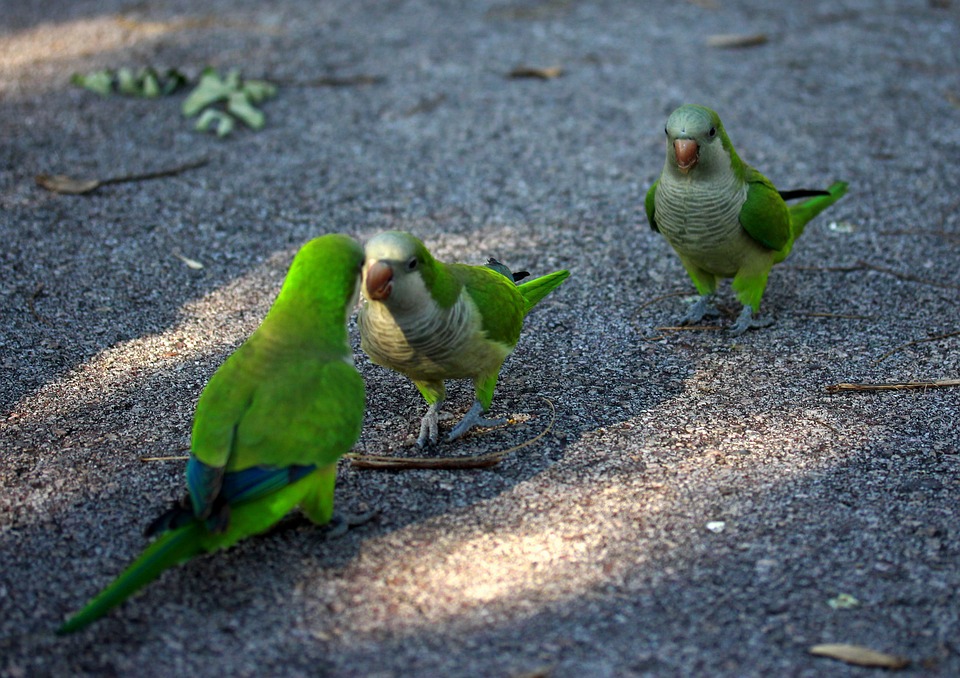Creating a harmonious training environment for your parrot is crucial for their mental stimulation and overall well-being. However, territorial behavior can hinder their progress and cause behavioral issues. In this article, we will explore effective techniques to discourage parrots from becoming territorial, ensuring a positive and productive training experience for both you and your feathered friend.
Before we delve into the strategies, it’s important to understand the root causes of territorial behavior in parrots. Parrots may become territorial for several reasons, including protecting resources such as food and toys, establishing boundaries and asserting dominance, or feeling fear and insecurity. Recognizing these triggers will help us address the issue effectively.
To discourage territorial behavior, it’s crucial to establish a neutral training space that doesn’t trigger territorial instincts. Here are some effective strategies you can implement:
1. Rotate Training Areas: Avoid confining your parrot to a single training spot. Instead, rotate training areas within your home to prevent territorial associations with a particular space. This will help your parrot understand that the entire home is their territory, not just a specific spot.
2. Minimize Perceived Threats: Remove any potential threats from the training space that may trigger territorial behavior. Other pets, loud noises, or sudden movements can make your parrot feel threatened and territorial. By creating a calm and safe environment, you can help them focus on training rather than defending their space.
3. Establish Clear Boundaries: Use physical barriers like playpens or training stands to create a clear distinction between the parrot’s training area and the rest of the room. This will help them understand the boundaries and prevent them from feeling the need to defend their space.
Positive reinforcement techniques can also play a significant role in discouraging territorial behavior and promoting a positive training environment. Consider the following approaches:
1. Reward-Based Training: Utilize positive reinforcement techniques, such as offering treats, praise, or favorite toys, to reward desirable behavior during training sessions. By associating positive experiences with training, you can create a positive association that will discourage territorial behavior.
2. Gradual Desensitization: If your parrot displays territorial behavior in a specific area, gradually expose them to the triggers at a distance while providing positive reinforcement. Over time, decrease the distance until your parrot becomes comfortable. This gradual approach helps them overcome their fears and insecurities.
Here are some frequently asked questions about discouraging territorial behavior in parrots:
Q1: How long does it take to discourage territorial behavior in parrots?
A1: The time required to discourage territorial behavior varies from parrot to parrot. It depends on factors such as the parrot’s age, past experiences, and the consistency of training. Patience and persistence are key.
Q2: Can neutering or spaying a parrot help with territorial behavior?
A2: While neutering or spaying can reduce hormonal influences, it may not completely eliminate territorial behavior. Training and environmental adjustments are still necessary.
Q3: What if my parrot regresses and becomes territorial again?
A3: Parrots may revert to territorial behavior due to changes in their environment or routine. Revisit the training techniques mentioned in this article and reinforce positive behaviors through consistent training and positive reinforcement.
Q4: Should I consult an avian behaviorist if my parrot’s territorial behavior persists?
A4: If your parrot’s territorial behavior persists despite your best efforts, it may be beneficial to seek guidance from an avian behaviorist. They can provide specialized advice tailored to your parrot’s needs.
By implementing these techniques and maintaining a positive training environment, you can discourage territorial behavior in your parrot and foster a stronger bond through effective training sessions. Remember, patience, consistency, and positive reinforcement are key when working with these intelligent and unique creatures.









